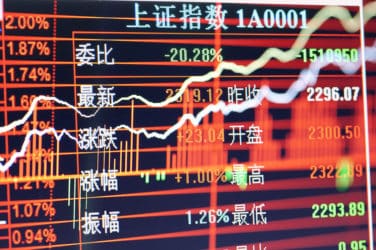
MarketAxess is reviewing the addition of further local currency Asian bonds to its electronic fixed income trading platform after launching with three currencies this month.
In December MarketAxess added the ability to trade local currency bonds denominated in Indonesian rupiah, Thai baht and Singapore dollar from 10 key market-making dealers to complement the 29 dealers providing liquidity in hard-currency Asia bonds.
Duncan Klein, head of Asia sales for MarketAxess, said in an email to Markets Media that the firm is currently reviewing the addition of other local currencies in Asia, which is expected in the first half of 2016. He added that the three launch currencies represent some of the more active Asia local currency markets, both from domestic and international investors, and so were some of the most in-demand markets from MarketAxess’ Asian clients and dealers.
Klein expects a mix of participation from international and domestic investor and dealer clients in the launch currencies, depending on the particular characteristics and investment profile of the local currency market. “Early adopters typically include our international clients who have exposure to both global and local markets. In the example of the Indonesian, Malaysian and Thai markets where there are significant foreign holders of local debt, we would expect blended activity from international platform participants,” he added.
AsianBondsOnline, a website maintained by the Asian Development Bank, performs an annual survey to assess liquidity conditions in emerging East Asian local currency bond markets. The latest survey, carried out in September and October 2015, found that liquidity appears to have tightened this year compared to 2014 as average bid–ask spreads have increased. The survey said: “The region’s local currency government bond markets continue to be more liquid than local currency corporate bond markets. Results also show that greater investor diversity remained the most important structural issue in boosting the liquidity of the region’s local currency government and corporate bond markets.”
MarketAxess’ local currency initiative is part of a plan to expand in Asia-Pacific, which includes opening an office in Hong Kong alongside the existing office in Singapore.
Klein said: “We are hearing consistently from our investor and broker-dealer clients that having access to a global pool of liquidity in both local and hard currency bonds is critical in a diminishing liquid market place. Adding the ability to trade local currency Asian bonds on our electronic platform extends our existing local currency offering in Latin America and Central Eastern Europe, Middle East and Africa and ultimately helps our clients access one of the broadest and deepest pools of global fixed income liquidity.”
MarketAxess said it offers trading in 22 global local currency markets and trading volumes have grown over 180% year-on-year.
“Emerging markets, both hard currency and local currency, are truly global products. The benefits of electronic trading resonate strongly with the local currency trading community where they can access liquidity in global products from global institutional market participants,” added Klein. “With the ability to trade local and hard currency debt in Asia and across the globe, MarketAxess is offering unparalleled access for global traders to connect with each other and ultimately improve liquidity in the region.”
In the third quarter of this year global local currency trading represented approximately 23% of MarketAxess’ emerging markets volume according to the firm. This year JP Morgan began offering all CEEMEA currencies on the platform. In July Nomura expanded its CEEMEA local market debt offering by adding South Africa, Poland and Hungary to the currencies it offers on MarketAxess.
The predicted interest rate rise from the Federal Reserve could result in outflows from emerging markets, including their bond markets.
Klein said: “As interest rates rise, we would expect an increase in directional trading flow, either in-flow or out-flow, of fixed income. With this increased volatility, electronic trading can serve as a reliable source to seek liquidity.”
Featured image via iStock




